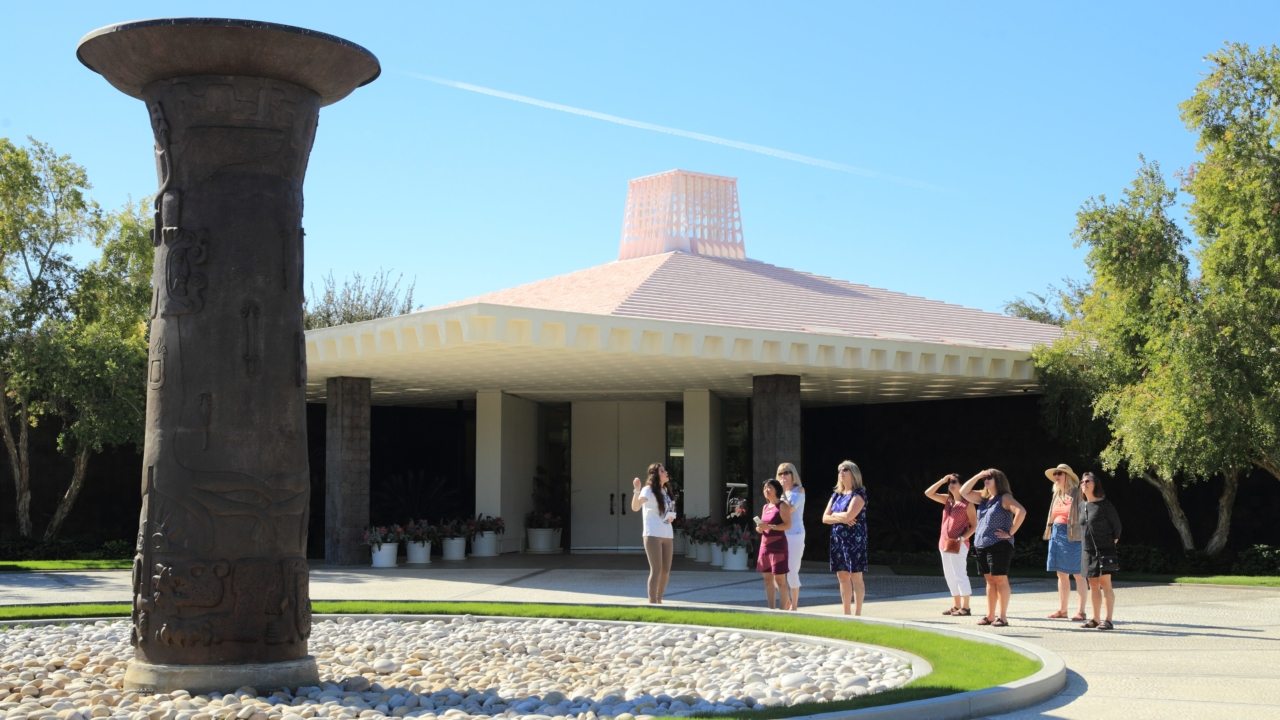Wetlands Education Program, Partnership with Xerces Society Announced
Sunnylands, in cooperation with the Xerces Society for Invertebrate Conservation, is developing a new wetlands education program. The program will explore the ecological health of the estate’s lakes and streams and determine what contributions they are making to area wildlife, in particular to invertebrates like dragonflies and damselflies.
Preliminary data confirm that the lakes and streams at Sunnylands are providing a valuable habitat for a variety of dragonfly species and other invertebrates. Sunnylands will collaborate with the Migratory Dragonfly Partnership (MDP), an organization of dragonfly experts, academic institutions, and agencies from the United States, Mexico, and Canada.
Under the direction of Michaeleen Gallagher, director of education and environmental programs, trained staff members and students will monitor water quality and life-cycles of the estate’s aquatic inhabitants.
“We’re committed to using Sunnylands as a learning laboratory,” Gallagher says. “And Xerces is a perfect partner. They bring expertise and years of experience working with invertebrates. Xerces will also benefit from this program. The data collected at our site will be added to the information they are collecting from other sites in North America, contributing to a greater understanding of invertebrates.”
Celeste Mazzacano, Ph.D., aquatic conservation director and staff scientist at the Xerces Society and project coordinator for MDP, explained that studying dragonfly migration in North America helps tell the story of the habitats where they flourish, thus important for ecological and educational purposes.
There are five primary species of dragonflies that migrate in North America; three have been found in the estate’s habitat. Mazzacano called Sunnylands “an excellent refuge for dragonflies,” and although dragonflies may be considered the unofficial “poster child” for invertebrates, representation of diverse species constitutes a well maintained and healthy environment.
Gallagher added, “The information that comes from this program could be valuable to the entire community, as we are able to offer information about man-made water systems and their biological development.”
This program will give students and teachers a chance to learn about invertebrates, other aquatic inhabitants, their migratory paths, and why they are important. As a hands-on citizen science project, students and teachers will experience how scientists conduct field research. The project will allow students to explore a wetlands ecosystem, and foster an interest in “urban” nature spots in their community. The bio-monitoring program is expected to be available for school participation during the 2015-16 academic year. It is illustrative of Sunnylands’ commitment to life-long learning, environmental responsibility, and creative and innovative solutions in sustainable practices.




